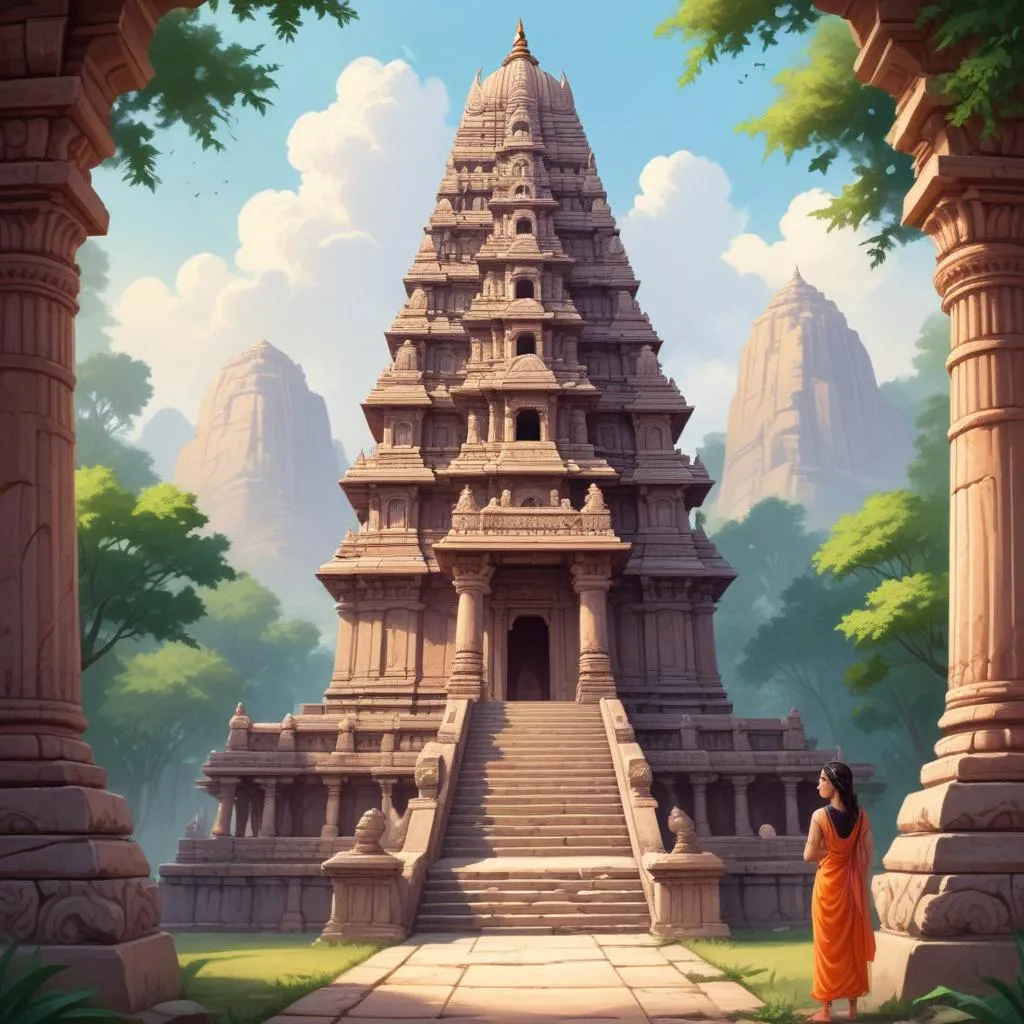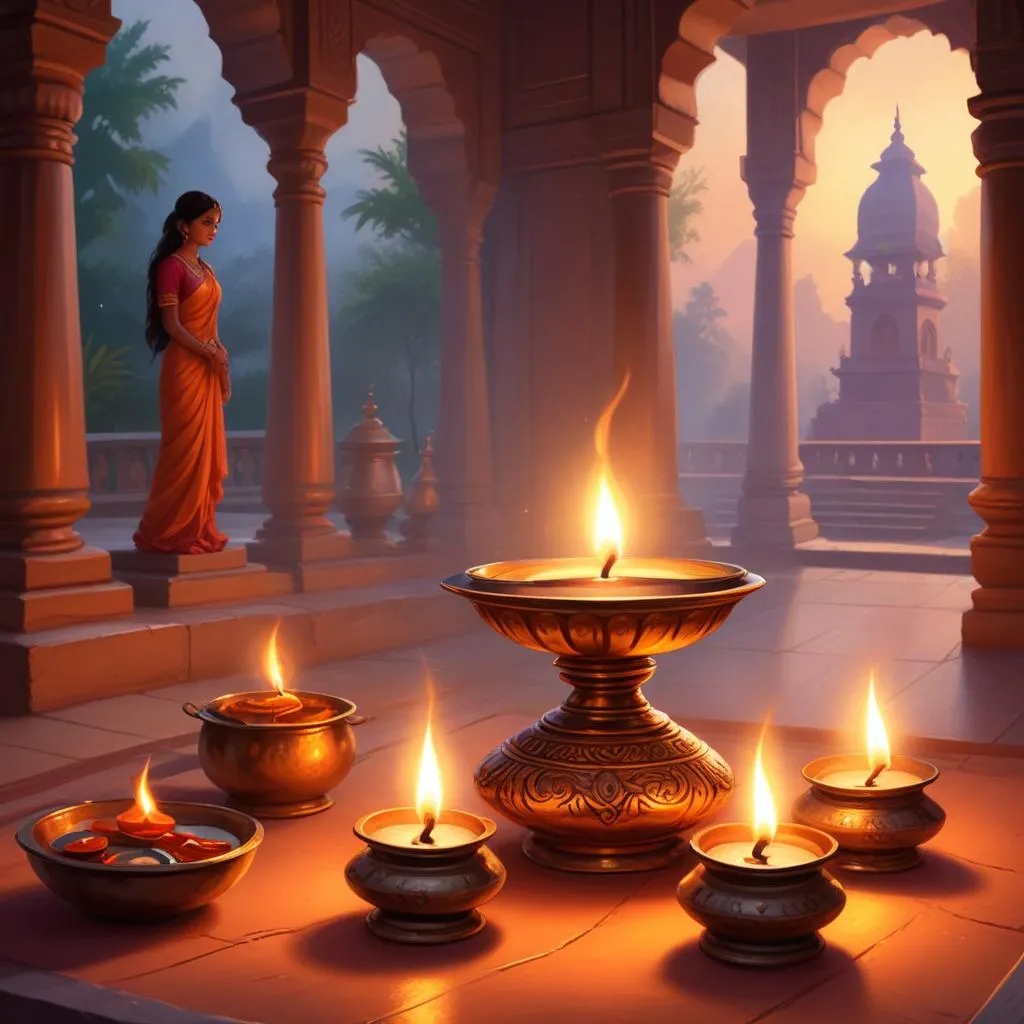
Sacred spaces where tales of divine interactions are revered
In the rich tapestry of Hindu mythology, the encounter between Hanuman, the devoted servant of Lord Rama, and Shani Dev, the deity of justice and planet Saturn, stands as a profound narrative about overcoming adversity through devotion and righteousness. This ancient tale illustrates how even the most challenging planetary influences can be transformed through unwavering faith and divine intervention.
The Cosmic Players: Understanding Hanuman and Shani
Hanuman: The Embodiment of Devotion
Hanuman, the monkey god, represents unwavering devotion, strength, humility, and selfless service. As the greatest devotee of Lord Rama, he exemplifies the power of bhakti (devotion) to overcome any obstacle. His tales in the Ramayana showcase his incredible might, wisdom, and loyalty.
Shani Dev: The Lord of Karma
Shani Dev, son of Surya (the Sun God), is the deity associated with the planet Saturn and the dispenser of justice. In Vedic astrology, Shani's influence is often feared as it brings challenges, delays, and hardships—but these are never arbitrary. Shani rewards righteousness and punishes wrongdoing, serving as the cosmic enforcer of karma.
The Fateful Encounter: When Hanuman Met Shani

The light of devotion that dispels darkness
According to the legend, Shani Dev once approached Hanuman while he was deeply immersed in meditation and service to Lord Rama. Shani informed Hanuman that according to his planetary position, he was about to enter a seven-and-a-half-year period of Sade Sati (Saturn's transit), which would bring great difficulties and challenges.
Hanuman, completely absorbed in his devotion, simply requested that Shani proceed with his duties but allow him to continue serving Lord Rama. What happened next varies across different versions of the tale, but the core narrative follows a similar path.
The Turning of Tables: A Lesson in Humility
In one popular version, Shani attempted to sit on Hanuman's shoulder to exert his influence. However, Hanuman—being an incarnation of Lord Shiva—began to grow in size until Shani was crushed between Hanuman and the ceiling. In terrible pain, Shani begged for mercy and release.
Hanuman compassionately released Shani but asked that instead of causing suffering, Shani should bless those who worship Hanuman with devotion. Impressed by Hanuman's power and devotion, Shani agreed that whoever worshipped Hanuman would be spared from his malefic effects.
This agreement created a profound spiritual principle: sincere devotion to Hanuman can mitigate even the most challenging karmic influences represented by Shani.
Spiritual Significance and Lessons

The dawning of understanding after periods of darkness
The Hanuman-Shani narrative offers several profound spiritual insights:
- Devotion Overcomes Destiny: The story illustrates that sincere devotion has the power to transcend even the most difficult planetary influences.
- Justice and Mercy Balance: While Shani represents cosmic justice, Hanuman represents divine mercy—showing that both are necessary for spiritual growth.
- Humility in Power: Despite his immense power, Hanuman displays compassion rather than vengeance toward Shani.
- Transformative Potential: The story demonstrates that challenges (represented by Shani) can be transformed into blessings through the right attitude and devotion.
Modern Relevance: Applying the Wisdom Today
Beyond mythology, the Hanuman-Shani dynamic offers practical wisdom for contemporary life:
- Facing Challenges: When encountering difficulties, instead of despairing, we can adopt Hanuman's attitude of steadfast devotion and service.
- Understanding Karma: Shani's influence reminds us that our actions have consequences, encouraging righteous living.
- Transformative Perspective: The story teaches that what appears as punishment can be reconceived as opportunity for growth.
- Devotional Practice: Regular spiritual practice can provide strength during challenging periods marked by delay and difficulty.
Hanuman Chalisa: Protection from Shani's Influence
An important aspect of this mythology is the belief that reciting the Hanuman Chalisa (forty verses in praise of Hanuman) can protect devotees from Shani's difficult influences. Many Hindus recite these verses particularly on Saturdays (the day associated with Shani) to seek protection and blessings.
The Hanuman Chalisa contains specific verses that reference this protective power, including: "Bhoot pishaach nikat nahin aaven, Mahabir jab naam sunaven" (Evil spirits do not come near, when one utters the name of Mahabir [Hanuman]).
Conclusion: From Conflict to Cosmic Harmony
The tale of Hanuman and Shani Dev beautifully illustrates how apparent conflict between divine forces ultimately serves a higher purpose of cosmic balance. What begins as a confrontation transforms into a blessing—revealing that devotion has the power to reshape destiny itself.
This narrative continues to offer comfort and guidance to millions, reminding us that challenges are not punishments but opportunities for growth, and that sincere devotion can transform even the most difficult periods into avenues for spiritual advancement.